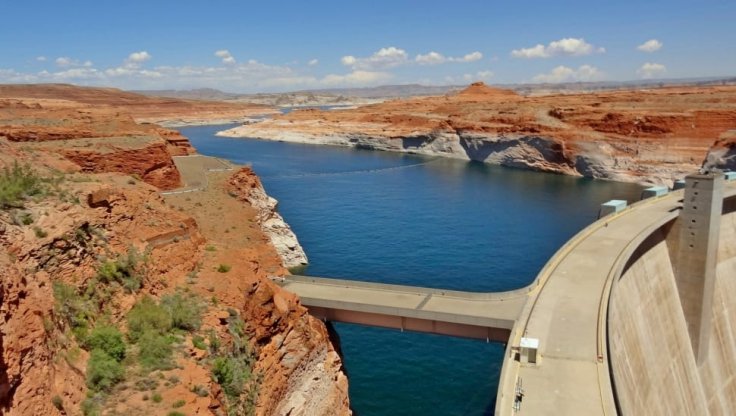Leaders of Sudan, Ethiopia, and Egypt said they were hopeful that the African Union could help them broker a deal to end a decade-long dispute over water supplies within two or three weeks.
Ethiopia, which is building the Grand Ethiopian Renaissance Dam (GERD) which worries its downstream neighbors Egypt and Sudan, said it would fill the reservoir in a few weeks, as planned, providing enough time for talks to be concluded.
Tortuous negotiations over the years have left the two nations and their neighbor Sudan short of an agreement to regulate how Ethiopia will operate the dam and fill its reservoir while protecting Egypt's scarce water supplies from the Nile river.
Ethiopia's water minister, Seleshi Bekele, said that consensus had been reached to finalize a deal within two to three weeks, a day after leaders from the three countries and South African President Cyril Ramaphosa, who chairs the African Union, held an online summit.
Billene Seyoum, a spokeswoman for Ethiopia's prime minister, said that in Friday's agreement there was "no divergence from Ethiopia's original position of filling the dam."

The Dam Deal Between Three
The Egyptian presidency said in a statement after the summit that Ethiopia will not fill the dam unilaterally.
The Grand Ethiopian Renaissance Dam (GERD) is being built about 15 km (9 miles) from the border with Sudan on the Blue Nile, the source of most of the Nile's waters.
Ethiopia says the $4 billion hydropower project, which will have an installed capacity of 6,450 megawatts, is essential to its economic development.
Ethiopia's Prime Minister's Office said that the three countries agreed that the Nile and the Grand Renaissance Dam "are African issues that must be given African solutions."
Friday's round of talks brokered by the African Union, is the latest attempt to move forward negotiations which have repeatedly stalled due to technical and political disagreements. They also signal an intention to solve the issue without foreign intervention.
Ethiopia's statement said the African Union, and not the U.N. Security Council, will assist the countries in the negotiations and provide technical support.
Cairo had appealed to the Council in a last-ditch diplomatic move aimed at stopping Ethiopia from filling the dam. The Council was expected to hold a public meeting on Monday to discuss the issue.









